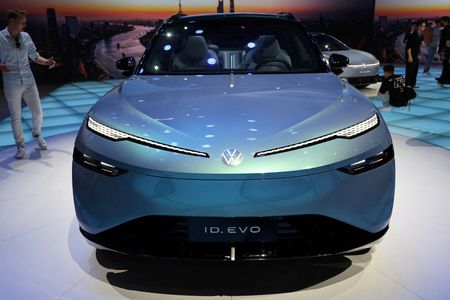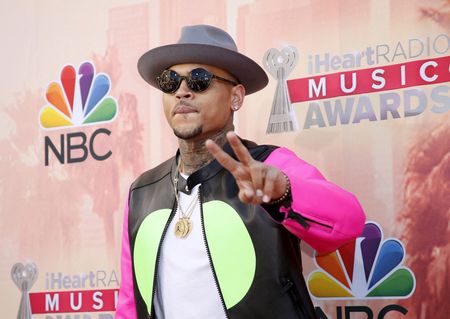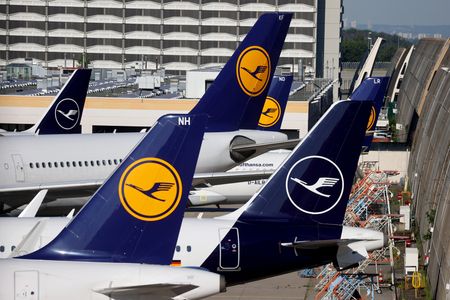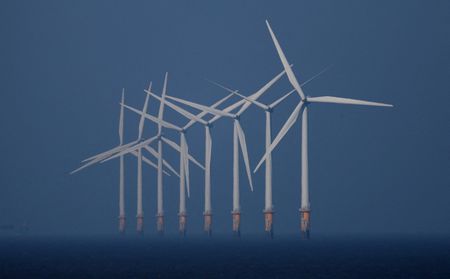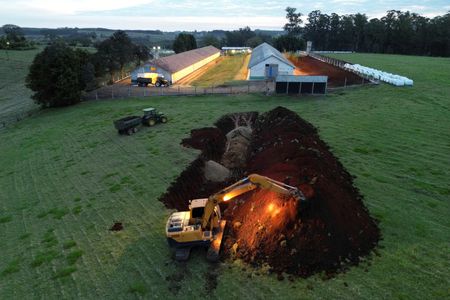By Victoria Waldersee
BERLIN (Reuters) -Volkswagen’s shareholders renewed their criticism of the automaker’s corporate governance on Friday, demanding greater board independence and expressing growing concern over the dominance of the German company’s controlling families.
At the carmaker’s virtual annual general meeting, several major investors took aim at CEO Oliver Blume’s dual role as head of both Volkswagen and Porsche AG, a contentious issue since Porsche’s listing as a separate company in September 2022.
“Mr Blume, once again we make the urgent appeal: give one of your board positions up,” said Ingo Speich of Deka Investment, stating that conflicts of interest across the carmaker’s governance structure were “highly problematic” and causing “grave damage to reputation and enormous financial losses.”
Volkswagen’s share price has dropped by nearly 25% in the past year from 140.40 euros to 105.6 euros, underperforming the European autos index and Germany’s DAX, according to LSEG data.
The carmaker, which warned last month it would likely hit the bottom end of its annual profit margin forecast, is battling challenges in all its key markets, from steep tariffs in the United States to fierce competition in China and high costs in Europe.
‘BLATENT DEFICIENCIES’
The Porsche and Piech families effectively control Volkswagen through their holding firm Porsche SE, which holds most of the voting rights in the Wolfsburg-based carmaker.
Wolfgang Porsche, who leads the supervisory boards of both Porsche SE and sportscar maker Porsche AG, has previously dismissed the idea that poor governance is to blame for the carmaker’s languishing share price, instead blaming weak performance and high costs.
Still, four investors argued that a lack of expertise on the board in key competencies like electrification or digitalisation were holding the carmaker back.
“The impression is becoming stronger that power, rather than the market, dominates at VW,” said Hendrik Schmidt from asset manager DWS.
Blume and supervisory board chair Hans Dieter Poetsch defended the CEO’s dual role on Friday, saying it benefited cost-cutting efforts underway at both companies. “It was clear from the beginning that [my dual role] was not intended to last forever,” Blume said. “The dual role is a recipe for success.”
Investors are not so sure.
“Instead of shrugging off shareholder criticism year after year, you should finally address and remedy these blatant governance deficiencies before VW slides even deeper into crisis,” said Janne Werning of Union Investment.
(Reporting by Victoria Waldersee and Christina Amann; Editing by Susan Fenton)

